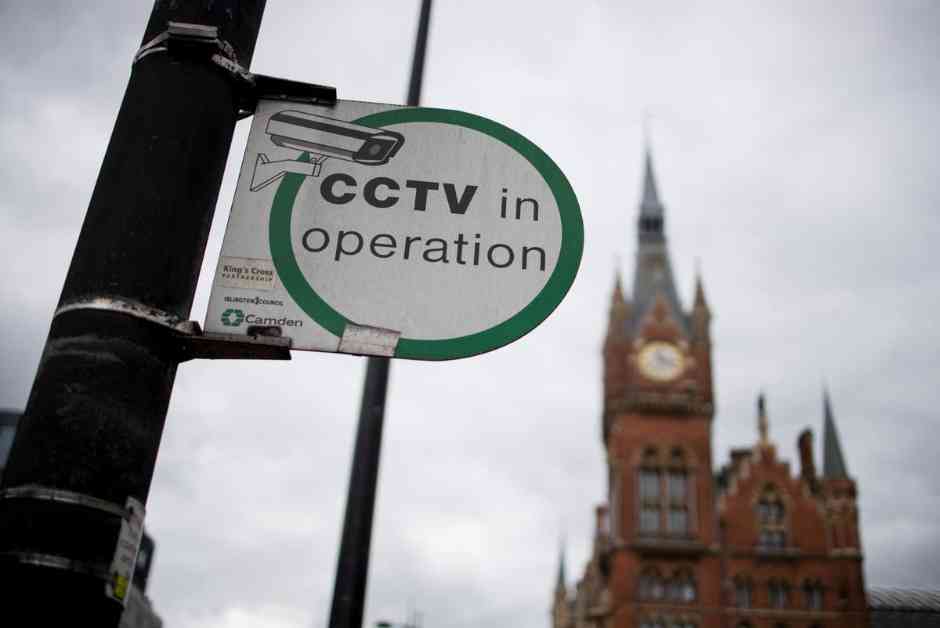Uttlesford District Council Implements Sound-Recording CCTV to Combat Antisocial Behavior
In a move to enhance public safety and address issues of antisocial behavior, Uttlesford District Council in Essex has recently approved a policy allowing for the installation of security cameras that can record sound. This decision marks a significant step in the council’s efforts to deter criminal activities and promote a safer environment for residents within the community.
The newly implemented policy enables the council to introduce audio surveillance to CCTV systems in various locations, including council-owned or managed residential buildings, gardens, offices, and vehicles. While there are currently no concrete plans for the deployment of sound-recording devices, the council has laid the groundwork for their potential use in the future.
Council spokespersons have emphasized that the primary objective behind this initiative is to combat antisocial behavior and improve overall public safety. By incorporating sound-recording capabilities into their CCTV systems, the council aims to create a more secure environment and enhance their ability to apprehend individuals engaged in criminal activities.
Controversy Surrounding Audio Surveillance in CCTV Systems
Despite the council’s intentions to bolster security measures, the decision to implement sound-recording CCTV has sparked controversy and raised concerns among privacy advocates and residents alike. Campaign groups such as Big Brother Watch have criticized the move, likening it to the intrusive surveillance depicted in George Orwell’s dystopian novel, “1984.”
According to representatives from Big Brother Watch, the introduction of audio surveillance in CCTV systems could potentially infringe upon individuals’ right to privacy and create a sense of unease among residents. They argue that rather than fostering a sense of security, the presence of sound-recording devices may lead to feelings of constant surveillance and intrusion.
In response to these criticisms, the council has stated that audio surveillance will be used selectively and in accordance with strict guidelines outlined in their CCTV policy. Measures will be put in place to notify individuals when recording is taking place, and the use of audio surveillance will be limited to specific cases of criminal or antisocial behavior.
Transparency and Accountability in CCTV Implementation
As part of their commitment to transparency and accountability, Uttlesford District Council has outlined clear guidelines and protocols for the deployment of sound-recording CCTV systems. Before installing new cameras in housing estates or communal areas, residents will be informed through written communication, ensuring that they are aware of the presence of audio surveillance devices.
Moreover, the council’s CCTV policy stipulates that audio recordings, like images, will be retained for a maximum of 31 days unless they are required for ongoing investigations related to criminal or antisocial behavior. This time frame ensures that data is stored responsibly and in compliance with data protection regulations.
During a recent cabinet meeting where the CCTV policy was approved, councillor Neil Reeve expressed his support for the initiative, emphasizing the importance of utilizing technology to enhance security measures within the community. He highlighted the necessity of maintaining a balance between privacy rights and crime prevention, underscoring the council’s commitment to safeguarding the interests of residents.
In alignment with their objectives, the council has affirmed their dedication to upholding the privacy rights of individuals while prioritizing the prevention and detection of crime and antisocial behavior. By adhering to a proportionate approach in the use of CCTV technology, the council aims to strike a balance between maintaining public safety and respecting the privacy of community members.
Impact and Implications of Sound-Recording CCTV in Public Spaces
The introduction of sound-recording capabilities in CCTV systems carries significant implications for public spaces and residential areas. While the use of audio surveillance may aid in identifying and apprehending individuals involved in criminal activities, it also raises questions regarding the extent of surveillance and the potential impact on privacy rights.
Residents living in council-owned or managed properties may experience heightened concerns about their privacy and personal security in light of the new CCTV policy. The presence of sound-recording devices could evoke feelings of distrust and apprehension, as individuals may feel that their every move is being monitored and recorded.
Furthermore, the implementation of audio surveillance in public spaces could have broader implications for civil liberties and individual freedoms. As technology continues to advance, the boundaries between security measures and privacy rights become increasingly blurred, prompting discussions around the ethical use of surveillance tools in maintaining public safety.
In response to these concerns, Uttlesford District Council has reiterated their commitment to maintaining a transparent and accountable approach to the implementation of sound-recording CCTV. By engaging with residents, providing clear communication, and adhering to strict data retention policies, the council aims to mitigate potential privacy risks and ensure the responsible use of surveillance technology.
Looking Ahead: Balancing Security and Privacy in Public Spaces
As local authorities grapple with the challenges of addressing antisocial behavior and enhancing public safety, the debate surrounding the use of surveillance technology in public spaces continues to evolve. The decision by Uttlesford District Council to incorporate sound-recording capabilities into their CCTV systems underscores the complex interplay between security measures and privacy concerns.
Moving forward, it is essential for councils and governing bodies to engage in open dialogue with residents, advocacy groups, and privacy experts to strike a balance between security and privacy in public spaces. By fostering transparency, accountability, and community input, local authorities can ensure that surveillance technologies are deployed responsibly and in a manner that respects the rights and freedoms of individuals.
In conclusion, the implementation of sound-recording CCTV in public spaces represents a significant development in the realm of security and surveillance. While the use of audio surveillance may offer benefits in deterring criminal activities and enhancing public safety, it is imperative for councils to uphold privacy rights and maintain a cautious approach to the deployment of such technology. By prioritizing transparency, accountability, and community engagement, local authorities can navigate the complexities of surveillance technology while safeguarding the interests of residents and preserving civil liberties in public spaces.












